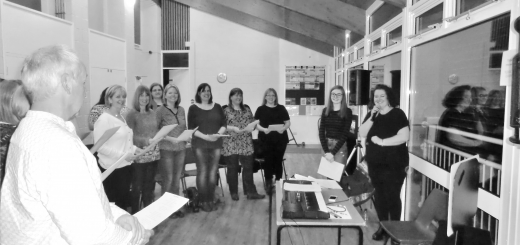Community Safety Patrol Officers
Hampshire Crimestoppers is continuing the fight against rural and coastal crime by targeting would-be thieves across the county. Crimestoppers is fighting back with a campaign
What we do
The CSPO service aims to reduce antisocial behaviour affecting people and places by:
- Enforcing a robust approach to ASB
- Deterring ASB through high visibility patrols
- Reassuring communities and victims
- Promoting measures to reduce risks of ASB
- Supporting police and partners
- Gathering evidence for remedial action
The council will not ignore antisocial behaviour and it will use its range of powers to take the most appropriate action to address it
How is this achieved?
- High visibility patrolling on foot, bicycle and vehicle across the whole of the Basingstoke and Deane area, dealing with the issues that affect residents the most.
- High profile campaigns targeting the key issues affecting residents (littering at the Leisure Park, Cigarette litter campaign, ASB in parks and Dog Fouling)
- Use of accredited police powers to provide a range of options to best deal with antisocial behavior.
- Close work with partners to ensure the most appropriate action is taken.
How do we operate?
- 12 patrol officers
- Providing coverage throughout all of Basingstoke & Deane
- Geographical points of contact for residents, community groups, elected members, businesses etc.
- Working between 7am-midnight 7 days a week (focussing on the key times antisocial behaviour is occurring)
Introduction to Doorstep Crime
Most people who call at your home will be genuine, but sometimes people can turn up unannounced, with the aim of tricking their way into your home in order to steal your money and valuables.
They may claim to be from well-known companies, organizations or charities. They may be men or women, young or old, and will be convincing and persuasive. They often use ‘props’ like an identity card or wear clothes with a company logo.
Other people can turn up as builders or gardeners and try to trick you into paying for unnecessary work. You should never agree to having any work done at your home by someone who is just passing or take their word that the work needs to be done at all.
Advice
None of us can tell at first glance whether a person is a rogue trader offering to do repairs or improvements, a bogus caller trying to get into our home or an intimidating sales person. Even when you are at home, keep your front and back doors locked!
Bogus callers sometimes work in pairs or teams. They are often well organized. One will distract the person while the other one searches the house for money and valuables. Never keep large sums of money in your house and keep money and valuables out of sight.
When an unexpected caller arrives at your door, use your spyhole and make sure the door chain is on before you open the door, as this will restrict the opening, give you time to think and show the caller you are on your guard. Point to your door sticker, be confident and say ‘No thank you!’ and close the door. Do not engage in conversation. You do not have to let anyone into your home.
If you are expecting a caller, remember to check their identification carefully against the letter you have been sent or the password you have agreed before you let them in. A genuine representative will understand your concerns and will be willing to return at another time, such as when you have someone else with you.
If you think work needs to be done on your house, get a few quotes from trusted companies and also ask a friend or relative for a recommendation. You can check whether the company is reputable by contacting Trading Standards.
If you think a bogus caller has called at your door, report it to the police immediately: dial 101, tell them what has happened and try to give a description of the person. If you feel threatened by a bogus caller, then dial 999 straight away and ask for the police.
Final Tips
Here are some simple steps we can all take when we get a caller at our door:
LOCK – all your doors, even when you are at home and keep the chain on.
STOP – as you approach the door and think, are you expecting anyone and do you require a password from
them?
TELL – the police, as need to know about suspicious callers. Call them on 101, or, if you feel threatened, on
999.
Remember when people come to your door:
If they’re there, be aware! If you’re not sure, don’t open the door! Say no, and tell them to go!



